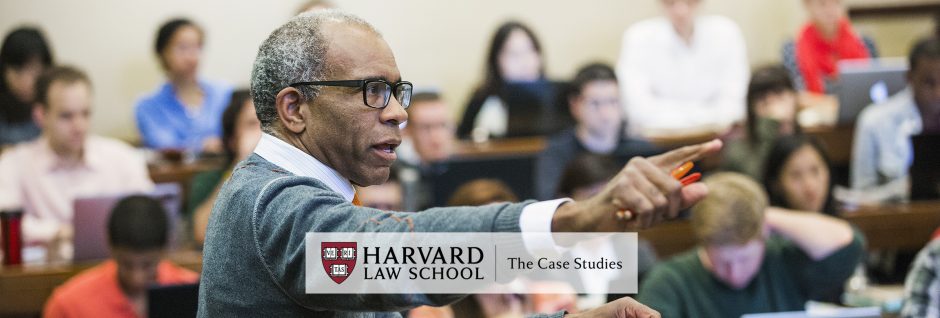
Post by Logan Sawyer, Visiting Associate Professor of Law, Harvard Law School
“That class was awesome,” and “You should definitely do that again next year,” were the first things I heard from students after the two case studies I taught in two different classes, at two different institutions. The classes were core, doctrinal classes, with 40 to 60 students who had never done a case study before. Yet, those comments were representative of the overall student response. What’s more, the cases were not just interesting: my students learned as much in those classes as they did in any class all year, both about the law and about what it means to be a good lawyer. Case study teaching, I’m convinced, should play an increasingly important role in law teaching. I know it will in my classes.
In my Legal Profession course at Harvard Law School, I taught the Aaron Swartz case as a way to cover the ethical concerns of prosecutorial discretion, and at the University of Georgia School of Law, I used three days to take my Corporations class through the Unocal case study in order to introduce mergers and acquisitions law. Both elicited more student involvement than any class all year and I’m quite sure they will be among the most memorable classes of the year.
At the core of what made the classes successful was that each case study placed students in the position of lawyers facing difficult decisions—in one how to fight off a corporate raider without counseling their clients into a violation of their fiduciary duties, in the other, how to proceed with a prosecution against an accused whose politically motivated actions many students found sympathetic—and each case also gave them a rich factual background that put their decisions in context. As a result, the students could see how abstract concepts like the duty of loyalty and serving the interests of justice mattered; how those concepts and other legal rules framed issues and raised questions. But they also saw that those rules and concepts did not provide answers.
The rich factual background allowed them to make textured arguments, develop alternative strategies, and understand the stakes of their advice and decisions. In the Unocal case, students formed small groups and fashioned defensive measures against a coercive two stage tender offer. One group even got pretty close to the self-tender strategy the Unocal board eventually adopted. In the Swartz case, students had to weigh the risks of a high profile prosecution and the potential coercion inherent in tough plea bargaining to determine how a prosecutor can best seek justice. In both cases, students were forced to not just make legal arguments, but to evaluate the risks and rewards those arguments created and then consider the implications of those risks. The students, in other words, had to be more than rule experts. They had to be lawyers. They loved it. And so did I.
